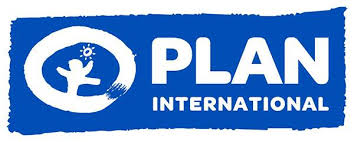Plan International believes that all children, adolescents and young people have the right to make their own free and informed choices and to have control over their sexual and reproductive health and lives, free from coercion, violence, discrimination and abuse. Girls and young women in particular are denied the ability to exercise these rights and addressing this is fundamental to achieving gender equality. Plan International also recognises the importance of ensuring that the youngest children receive critical care, supports and services for their early years’ development, and the positive impact this will have on their health, wellbeing, and ability to form relationships and make decisions through adolescence and into adulthood. However, multiple barriers – including gender discrimination - prevent children from enjoying a positive start in life, surviving and thriving. In response to these challenges, Plan International commits to investing $500 million, between now and 2025, in the early year’s development and sexual and reproductive health and rights of children, adolescents and young people, particularly girls, in at least 25 countries.
Over the reporting period (July 2017 – December 2019), Plan International has implemented comprehensive ECD programming aligned with the Nurturing Care Framework in four regions and in both development and humanitarian settings, including protracted crises. Our programming includes the following key pillars:
- Parenting education and support programmes for nurturing care (encompassing health, nutrition, play and early learning, responsive caregiving, safety/security – with a focus on protection from violence);
- Promotion of improved access to quality MNCH and nutrition services; 3) promoting access to quality, play-based early learning opportunities, both formal and nonformal.
Across all of these, our work is increasingly focused on promoting men’s positive engagement in nurturing care and MNCH, and in ensuring that girls and boys receive equally good care, supports and access to services. In multiple contexts, our ECD programming is also linked to WASH programming focused on household and community access to improved water and sanitation, as well as key hygiene practices. This work has resulted in:
- Improvements in parents’ reported nurturing care practices;
- Increased proportions of women receiving recommended antenatal/postnatal contacts and skilled attendance at birth, and of children receiving essential services (immunizations, ORS, pneumonia treatment etc);
- Increased numbers of children attending early childhood care and education programmes and transitioning successfully to primary school;
- Increases in the proportion of men that share responsibilities for care work, childcare and household decision-making.
Plan International´s work on SRHR focuses on CSE, strengthening adolescent and gender-responsive SRH services and harmful practices. We have also been growing our SRHR in Emergencies (SRHRiE) work to address girls needs in crisis settings. Plan works directly with young people to build their skills and confidence, and engage parents, caregivers, health providers, teachers and governments to create an enabling environment for the improvement of girls and adolescents´ SRHR by 2025, bringing us closer to achieving the SDGs.
We strengthen CSE provision by collaborating with government institutions and UN agencies to improve the provision of quality CSE through support to teacher training and reviewing and updating national CSE curriculums and manuals in countries such as Bangladesh, Laos, El Salvador to Togo. Our work on strengthening adolescent and youth friendly health services (AYFSH) is primarily focused on three models: separate spaces for AYFHS, mainstreamed AYFHS and community-based service. One of the most promising areas of work for Plan is youth-led social accountability where some offices, such as El Salvador, Malawi, Kenya, Bangladesh, Burkina Faso, tried engaging youth through scorecards and assessment tools. We also tackle harmful practices such as child and early forced marriages and unions (CEFMU) and female genital mutilation/cutting (FGM/C) though advocacy and influencing.
We support SRHRiE through child protection and education in emergencies programming, and with more targeted approaches in protracted crises and fragile setting through activities such as life skills curriculums, GBV case management and referrals to protection and health services, distribution of menstrual health and hygiene supplies, and work on positive social norm change in Jordan, Lebanon and Egypt, Venezuela and Colombia.







